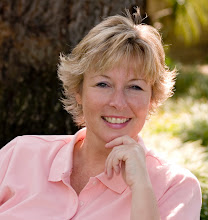
After writing my book and going out on the discussion circuit, I received a small, but not unexpected backlash from docs regarding its premise of selected integrative healing options being mainstreamed into the hospitals. I took great pains to not make this an agenda book because I see where there are legit concerns surrounding integrative medicine. Much needs to be said regarding this issue, and I felt my book opened the door to getting the pros and cons out there.
I became acquainted with Reiki during the research phase of my book. Reiki, initially, was a mere footnote in the book until it made a huge impact on my own health. No one was more dubious and skeptical than I. Healing energy that pours through one’s hands? Give me a break. It wasn’t until my docs had to take me off my meds for reasons they couldn’t identify that I realized something big had happened to me, and that maybe we don’t know everything there is to know about healing. I felt it an intriguing (and controversial) premise for my book.
There’s a line from my main character in my second book that sums it up: “For a profession where knowledge is power and new discoveries await us at every turn, we doctors certainly are a close-minded lot.” Those words came from my imagination before my first book came out. I had yet to discover how prophetic those words would be as I encountered over-generalized bias.
Most comments I’ve encountered run along the same lines; integrative medicine preys upon the ignorant, gullible, and desperate who stupidly shell out thousands for fake cures. There is truth to this comment, and this is something I play up in my book. For every honest alternative healing option, there are dozens of fake ones. I understand docs’ anger over this because people are dying or getting sick from curable diseases.
But rather than denigrating the uses of alternatives, the crux of the debate should center on the need for patients to always go to their docs. Integrative /alternatives/
But docs shoot themselves in the foot by lashing out. How forthcoming is a patient going to be if they’re laughed at or told they’re stupid? When my doc and I came to the conclusion that I could no longer tolerate my meds - we scratched our heads until I realized the only change in my treatment was Reiki. If I had felt for one minute that I was going to be subjected to humiliation, I would have kept my mouth shut. A doctor's reaction/ belief system is very influential to the doctor-patient relationship, and I worry about about eroding communication to the point of silence.
I’m not saying that Reiki, chiropractic, or acupuncture will cure all disease for everyone because no one can guarantee that. Because of this, I see why many docs are skeptical. But as long as patients continue to be under a doctor’s care, I see no reason why alternative healing options can’t be considered viable. And I see no reason why docs shouldn’t expand their horizons to do some unbiased research. There is plenty of solid information out there, many from well-respected mainstream docs and surgeons.
So that’s where I stand. I believe in integrating alternative healing options into science-based medicine to create a united front against disease. I believe in being cared for by my docs. I believe integrative/ mind-body medicine isn’t going away because there's too much out there that supports its use. I believe docs can either close their minds to the notion that they don’t know absolutely everything about how the body heals and how the mind contributes to wellness, or they can hold fast to their beliefs and risk losing open communication with their patients.








2 comments:
Good for you! There is a story about Joseph Pilates that is interesting. he treated my teacher Eve gentry after she had a radical mastectomy in the 1950s and restored full range of motion in the affected shoulder. Her surgeons wanted to hear all about it until they realized he was not a licensed medical professional. As a Pilates teacher and Reiki master I still get the same feedback on occasion. You think people would learn...
Oh, my blog is
Pilates & Reiki In Paradise Blog
Post a Comment